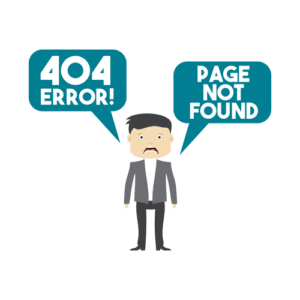
Explore how blockchain technology is transforming financial auditing, enhancing transparency, and improving efficiency in accounting practices. However, it can transform the accounting industry by making financial records more secure, transparent, and efficient. Its decentralized ledger system ensures tamper-proof financial records, streamlined audits, and enhanced financial transparency, which help prevent fraud and build client trust.
tax software survey

This technology provides a tamper-proof record of financial transactions, significantly reducing risks of errors and fraud. For industries governed by regulations such as the Sarbanes-Oxley Act, blockchain can streamline compliance and auditing processes. In summary, blockchain technology has ushered in a new era for forensic accounting, revolutionizing the way financial data is accessed, verified, and audited.

Challenges in adopting blockchain
Blockchain can help prevent accidental duplication of invoices, expenses, or payroll payments based on the correct realization of smart contracts or transaction control systems. The chances of record duplication are reduced as each transaction gets a unique cryptographic signature. Blockchain’s task is to ensure a real-time reconciliation by underlining the duplicate entries. Moreover, with triple-entry accounting, the blockchain makes it hard to commit double-entry fraud.

Fraud Prevention
Blockchain was invented in 2008 by the pseudonymous Satoshi Nakamoto, although similar protocols had been proposed since the early 80s. Here are all the statistics and data to know about the relatively new technology. We’ll also cover the potential benefits and downsides — there are a lot of both.
Digital Identity Verification
- This allows users to securely transfer value or assets without having to rely on a trusted third party such as a bank or government institution.
- There are many blockchain applications and start-ups in this field, but there are very few that are beyond the proof of concept or pilot study stage.
- All the required stakeholders and auditors are independent in verifying transactions.
- For accountants, using blockchain provides clarity over ownership of assets and existence of obligations, and could dramatically improve efficiency.
However, concerns persist regarding the energy-intensive nature of blockchain in accounting proof-of-work (PoW) consensus mechanisms. A pertinent application involves AI-powered anti-money laundering (AML) detection mechanisms. Financial institutions such as HSBC have embraced AI-integrated blockchain systems to identify suspicious transactional patterns, fortifying financial security frameworks. Blockchain technology has been a game-changer for the accounting industry, offering a plethora of advantages in cost savings, audit trails, and more.

CPA.com accounting profession megatrends, 2019
As of June 2021, the world saw 2.58 cryptocurrency transactions every second and spending is forecast to hit almost 19 billion U.S. dollars. And in some ways even the, you know, the bitcoin drop was probably a good thing overall for the marketplace. Because you want to get the speculators out, and you want to see what value bitcoin can provide to its different use cases. Just for the audience if anyone owns bitcoins, they’re all, is built off of a blockchain database, just like the stablecoins are.
Impact of Blockchain on Accounting: 7 Key Impacts
90% of government organizations worldwide have investigated the potential of investing in blockchain technology, an IBM study found in 2017, with more clear audit trails and better overall transparency among the reasons why. A GL includes all the assets, liabilities, equity, expense, and income ledgers, which make up a complete set of the financial transactions records. The Accounting Blockchain Coalition (ABC) is https://www.bookstime.com/blog/coronavirus-aid-relief a valuable resource for accountants seeking to learn about blockchain technology and its applications. It provides educational materials, facilitates collaboration, and advocates for adopting blockchain standards within the industry. Firms can leverage blockchain technology to manage and track fundraising efforts, ensuring transparency and accountability in how funds are used and distributed. Traditional accounting processes are often filled with inefficiencies, errors, and delays.

Furthermore, blockchain will co-exist with other emerging technologies, such as artificial intelligence (AI) and machine learning (ML), becoming a part of a suite of tools that redefine the accounting landscape. Some blockchain networks, particularly those that use proof-of-work consensus mechanisms, can be energy intensive. This raises concerns about sustainability and the environmental impact of implementing blockchain solutions. Before deciding to implement blockchain, it’s essential to understand how it works and can benefit https://www.laroya.co.uk/general-ledger-reconciliation-a-simple-guide-sage/ your firm.
Collaborate with Technology Partners
Ensure your systems comply with industry regulations and data protection laws. Accountants will not need to be engineers with detailed knowledge of how blockchain works. But they will need to know how to advise on blockchain adoption and consider the impact of blockchain on their businesses and clients. They also need to be able to act as the bridge, having informed conversations with both technologists and business stakeholders. Accountants’ skills will need to expand to include an understanding of the principle features and functions of blockchain – for example, blockchain already appears on the syllabus for ICAEW’s ACA qualification.
